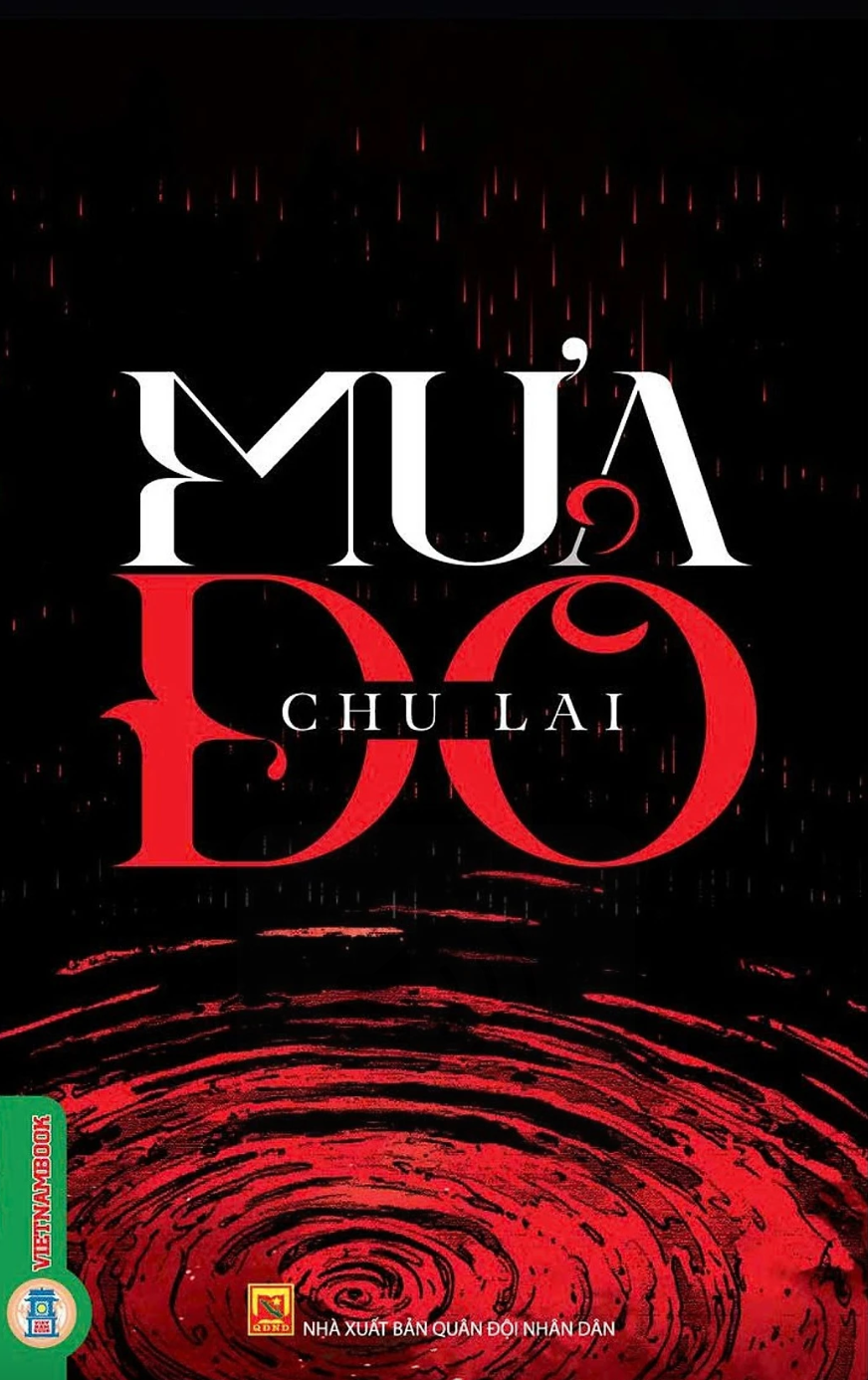On the evening of 5/9, the film Mua do surpassed 500 billion VND after 15 days in theaters. The war-themed film achieved more than 5,000 screenings nationwide each day and is predicted to soon surpass Tran Thanh's Mai (551 billion VND), becoming the highest-grossing Vietnamese film in domestic box office history. On social media, the keyword "Mua do," along with videos discussing the film's plot and characters, are receiving significant attention.
Author Chu Lai wrote the screenplay for this project 15 years ago. Due to a lack of production funding from film studios, he developed it into a novel of the same name, published by the People's Army Publishing House for the first time in 2016 and reprinted several times in 2017 and 2019. Since the end of last month, the appeal of the film Mua do has prompted viewers, mostly young people, to seek out the book.
On TikTok, booksellers are continuously live-streaming to introduce the novel. Phuong Ha, 19, from Hanoi, said she was moved after watching the film but felt that due to time constraints, some segments lacked detail. According to many posts on social media, viewers learned that the novel portrays the brutality more vividly, leading them to want to read the book. However, some sellers have announced a wait time of more than a week due to overwhelming orders.
Translator Nguyen Tuan Binh, owner of Binh Book, said he is witnessing an unprecedented phenomenon. He started selling the novel Mua do in 2024. During the 30/4 anniversary this year, his company recorded sales of about 300 copies, but currently, the number has reached 6,000. "This is a complete craze; the explosive growth occurred within just a week of the film's release," Nguyen Tuan Binh said. According to the translator, along with Mua do, other works about the Quang Tri Citadel battle are also being sought out, such as Nhung buc di thu Thanh co (by Le Ba Duong) and Hoi uc Quang Tri (by Nguyen Thuy Kha).
 |
The book "Mua do" received the Vietnam Writers' Association Award in 2016. Photo: Fahasa |
The book "Mua do" received the Vietnam Writers' Association Award in 2016. Photo: Fahasa
A representative of Fahasa bookstore said that before the film's release, sales were stable, but afterward, they increased dramatically. As of 4/9, sales across the nationwide system and e-commerce channels have exceeded 13,000 copies, reflecting the special appeal of this literary and cinematic phenomenon.
"The impetus from the screen has led to a surge in demand for the novel, quickly making it one of the most prominent titles on bookshelves at Fahasa stores and on e-commerce platforms. It can be affirmed that Mua do is one of the most remarkable book-selling phenomena at Fahasa in recent years. This craze demonstrates the powerful synergy between literature and cinema," the representative said.
The novel is set during the battle of Quang Tri Citadel and revolves around a squad of seven soldiers, each with different backgrounds and personalities. They experience moments on the brink of life and death and endure the pain of witnessing their comrades fall. Through this, the work reminds the younger generation to be grateful for the sacrifices of their forefathers for national independence and to cherish the value of peace.
Author Chu Lai, also known by the pen name Tam Linh, was born in Hung Yen and is the son of playwright Hoc Phi. In 1963, he joined the army and later joined the General Political Department's Drama Troupe. In 1967, he volunteered to fight in the eastern battlefield of South Vietnam, starting as a regular infantry soldier and rising to become a local special forces company commander in the outskirts of Saigon.
After the country's reunification, he worked at the Propaganda Department of Military Region 7 and then studied at the Nguyen Du School of Writing, first course. In 1982, he worked at the Military Literature and Arts Magazine until his retirement, holding the rank of Colonel. He has written many works about soldiers and war, drawn from his combat experiences, including Nang dong bang (1978), Vong tron boi bac (1987), An may di vang (1991), Cuoc doi dai lam (2001), and Khuc bi trang cuoi cung (2004).
Phuong Linh












